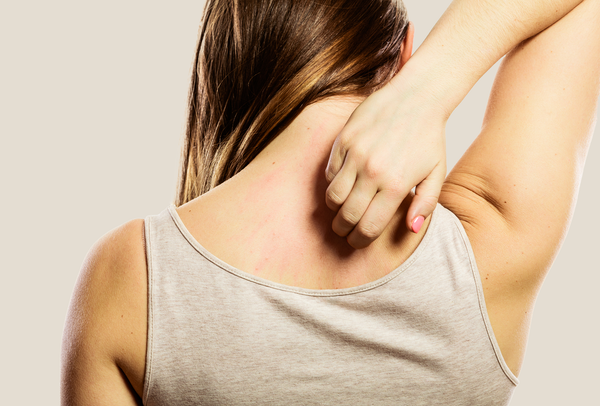More often than not, talk about the skin’s barrier is focused on the role it plays in dryness and sensitivity—and rightfully so. We know the barrier’s main job is to help the skin retain hydration while keeping irritants and allergens out, and recent research shows that acne may be associated with impaired skin barrier function.
SEEN’s founder, Harvard-trained dermatologist Dr. Iris Rubin, is always keeping an eye on the latest skin science. She recently came across an interesting study that examined the skin barrier in patients with untreated acne as well as those who were actively addressing their acne with common blemish-fighting ingredients.
Dermatologists and researchers alike agree that each person’s unique, DNA-driven skin cell-shedding process and timing can contribute to the formation of acne. Research has shown that a protein called filaggrin plays a key role in the structural integrity of the skin’s barrier—and that the C. acnes bacteria associated with acne breakouts may increase levels of filaggrin within the skin. Although no definitive link has been proven, researchers hypothesize that less filaggrin production due to genetics is associated with a lower incidence of acne and a more effective skin barrier. (Of course, further studies are needed to confirm this correlation.)[1]
One of the main takeaways from this study is that untreated skin with acne can experience the typical symptoms of an impaired skin barrier, including moisture loss, lower hydration levels, and increased sensitivity. Even more, those with active acne have lower levels of skin ceramides that are essential for skin-barrier function—and as acne progresses in severity, ceramide levels plummet.
According to this study, if you’re currently using over-the-counter or prescription-based acne treatments and experiencing increased dryness and sensitivity, this could be due to the acne itself or a side effect of the active ingredients in your products (or both). This, and several other studies have documented the effects that acne-treatment products with ingredients such as benzoyl peroxide, topical retinoids, and oral medications like isotretinoin (Accutane) can have on the skin. Again, these side effects are believed to be caused by compromised barrier function, however, supplementing your treated skin with extra hydration and ingredients like ceramides may help reinforce the skin’s barrier and improve the skin’s tolerance of these treatments. (Always be sure to speak to your dermatologist if you experience any sort of reaction to any type of skincare product.)
So how can you support your skin’s barrier as part of your acne-fighting efforts? First, take a closer look at each and every product that comes in contact with your skin and hair. Make sure that everything you use is non-comedogenic and non-irritating. Remember, even rinse-out products like shampoo and conditioner can leave a residue on the skin as they cascade down your body. In fact, SEEN performed a study that found that both leave-in and rinse-off hair-care products can deposit residue on the skin that can stick around for hours. This is why we think of hair care as skincare when developing and testing our products.
Consider these impressive results achieved just by using non-medicated SEEN. In a dermatologist-graded study, 70% of participants with body acne and 52% of those with facial acne saw improvement—and 74% said their skin looks and feels healthier after using SEEN Shampoo and Conditioner as a regimen for eight weeks.[2]
SEEN takes the guesswork out of creating a personal-care routine that keeps the health and appearance of your hair and skin in mind. All of our hair products, as well as our Face Wash and Body Wash, are non-comedogenic (which means they won’t clog pores), non-irritating, safe for sensitive skin and simply a joy to use! You get all of the luxury feels without any of the compromises—and the peace of mind that comes along with using a product regimen that works to make your skin happier and healthier.
[1] https://www.ncbi.nlm.nih.gov/pmc/articles/PMC3579484/
[2] https://jddonline.com/articles/efficacy-of-a-non-comedogenic-hair-care-regimen-for-the-reduction-of-mild-to-moderate-truncal-and-fa-S1545961621P0690X/




